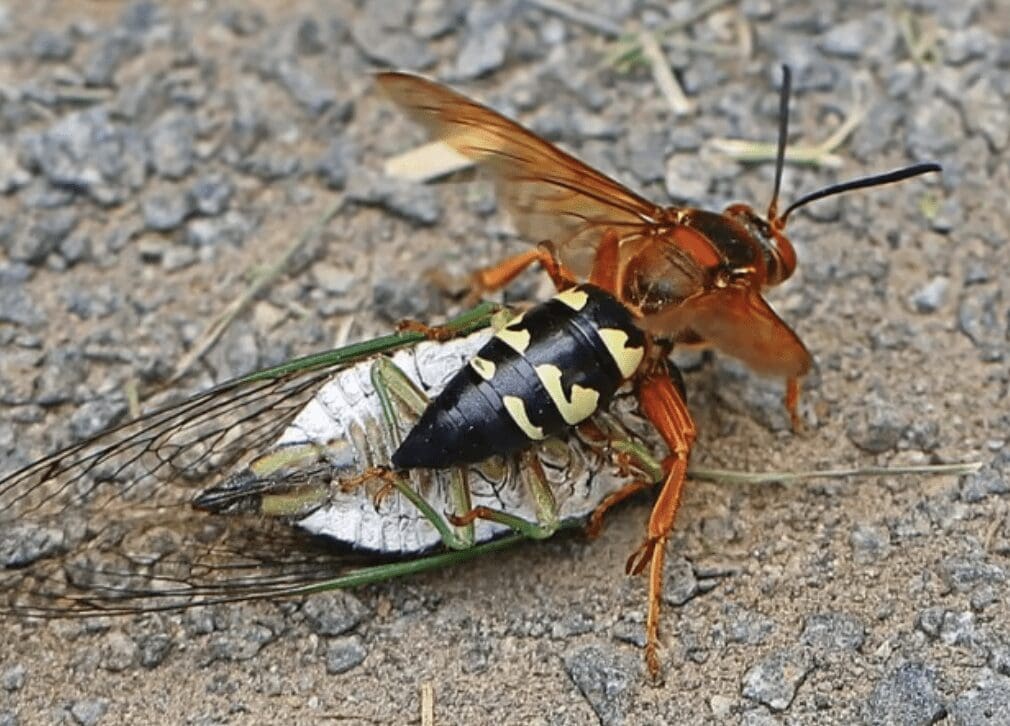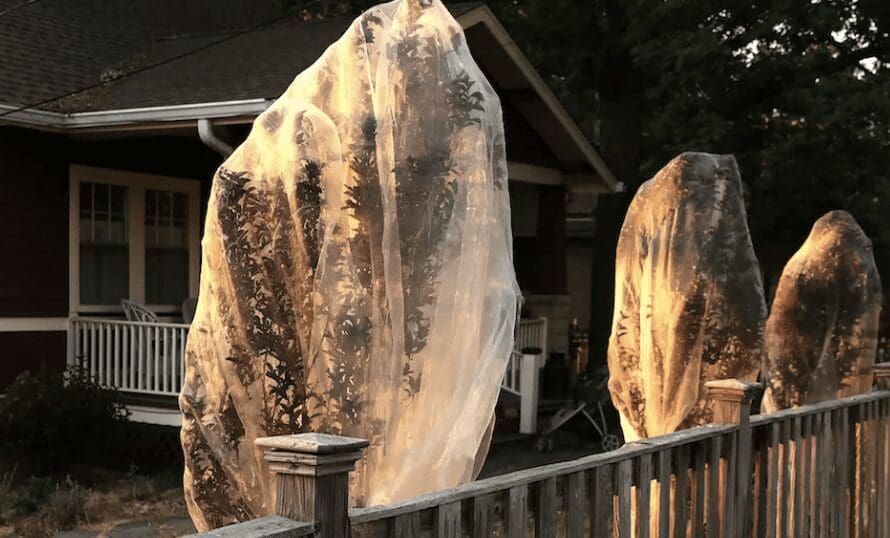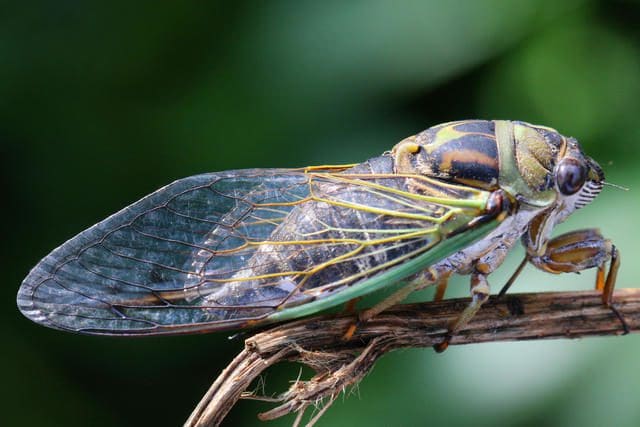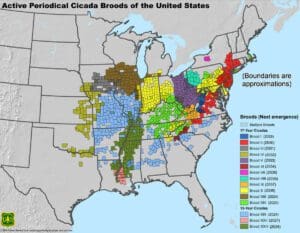While parts of the country will be swarmed with the convergence of two periodical cicada broods, it’s a regularly scheduled appearance for the insect in Delaware.
“The double brood this year involves 13-year cicadas and 17-year cicadas,” said Chris Wade, the pesticide section administrator at the Delaware Department of Agriculture.
The closest brood to Delaware will be in South Maryland with Brood XIX cicadas, which come around every 13 years.
Illinois will be hit the hardest with both the 13-year and 17-year bugs migrating from their burrow underneath trees.
The next periodical cicada emergence in the First State will be Brood X – one of the 15 types of periodical cicadas – in 2038.
“So a normal year for Delaware is the annual cicadas. Those are the ones that are green and brownish colored,” Wade said. “The periodicals are black with the red eyes. They’re a little bit smaller but their colors are brighter so people can see that, and they get more excited than the regular ones.”
A normal cicada season involves an ascension of the insects in late June or early July.
Their arrival will be almost impossible to miss with their clicking mating sound and their exoskeletal shells left on trees and the ground.
The female cicadas make slits at the end of tree branches to lay their eggs.
“Then those larvae emerge and fall into the soil beneath the tree,” Wade said, “and they burrow into the ground and they feed on the tree roots and other plant roots in the area.”
By September, the larvae are all buried, the adults have died off and the cicada season is over.
“The adults can feed a little bit, but they don’t really feed a lot,” Wade said. “Their main purpose is to reproduce, and then they pass away.”
Environmental impact
For the parts of the country experiencing a double brood, Wade said there are not real concerns or negative impacts, but excessive egg laying can damage the tips of some trees.
“We’re not going to have that problem here, but they are considered beneficial because they do produce a lot of food sources for pretty much anything that eats insects,” he said. “When the cicadas emerge, especially with the double brood, there’s an extra supply of food for all the wildlife so animals anywhere from birds, squirrels, racoons and more feed on these cicadas.”
He said tree damage or death is only a real issue if a bunch of cicadas decide to place their eggs in a small sapling or freshly planted trees.
While the insects spend most of their time on Earth in the ground, they’re still productive members of society.
They aerate the soil while they’re digging through to get to roots, and the aeration helps with water flow and drainage through the trees.
Cicada killers
The Department of Agriculture, he said, gets a lot of calls every year about cicada killers.
 They are a naturally occurring species of wasp that hunt and sting the cicadas, bury them in the ground and lay an egg on them for their larvae to feed on.
They are a naturally occurring species of wasp that hunt and sting the cicadas, bury them in the ground and lay an egg on them for their larvae to feed on.
“People get super scared of them and excited because it’s a really large wasp, and they call us thinking it’s an Asian Giant Hornet,” Wade said.
The cicada killers don’t bother humans and don’t sting unless they’re stepped on or grabbed – so if you see a gigantic wasp, do not pick it up!
“They emerge at the same time, they’re synced up,” Wade said. “You know nature’s pretty awesome. Cicadas come out, they emerge because that’s their food source, so their timing is pretty much on point with when they come out.”
Snacks and allergies
Yes – some people snack on the cicadas.
 Those that do usually satisfy their sweet tooth, too, by dipping the bugs in chocolate before consumption.
Those that do usually satisfy their sweet tooth, too, by dipping the bugs in chocolate before consumption.
“If you have a crustacean allergy, you can have an allergic reaction,” Wade said. The reaction would be similar to if that person ate seafood.
Avoid pesticides
It’s not a good idea to spray the cicadas with insecticides or pesticides, especially since it’s not a double brood in Delaware and the  insects won’t be any more noticeable than usual.
insects won’t be any more noticeable than usual.
“It’s really not worth spraying them,” Wade said. “Insecticide costs you money and all you’re really doing is killing other insects that aren’t your target insects. These are food sources for a lot of animals so spraying them with pesticides, now those animals are getting exposed to pesticides so it’s really not in your best interest to spray them.”
He said people who have a really expensive or cherished tree can protect them by placing netting around it during the season to deter the cicadas.

Raised in Doylestown, Pennsylvania, Jarek earned a B.A. in journalism and a B.A. in political science from Temple University in 2021. After running CNN’s Michael Smerconish’s YouTube channel, Jarek became a reporter for the Bucks County Herald before joining Delaware LIVE News.
Jarek can be reached by email at [email protected] or by phone at (215) 450-9982. Follow him on Twitter @jarekrutz
Share this Post








